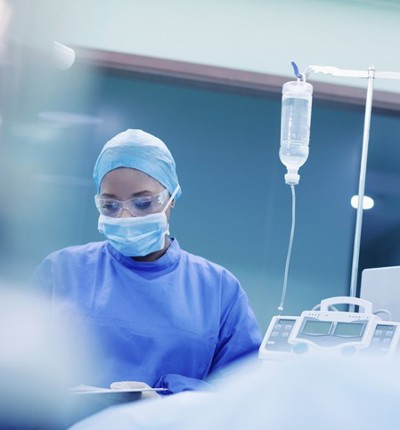
Woman secures compensation in excess of £11million for brain damage suffered after operation
A woman has secured a lump sum compensation payment in excess of £11 million, to cover the 24-hour care she now needs after suffering brain damage following an operation to repair her Achilles tendon.
Posted on 21 November 2019
Before the operation Deborah*, who was in her 40s, was a fit and healthy woman, who had an interest in a number of sports and worked as a finance executive.
As a result of the brain injury she suffered Deborah can no longer engage in sporting activities or do the job she loved. Because of her injuries she has motor and cognitive impairments which involve major difficulties in memory, mental speed and executive function and limited insight into her condition. She has also developed complex psychiatric symptoms.
Her motor impairment involves slowness of movement, difficulty with fine finger movements and problems with balance. She is at risk of falling and she has weakness in both hands. She tires easily, and has lost her sense of taste and chokes on liquids. She has also developed a condition that causes involuntary muscle jerks called myoclonus.
Deborah ruptured her Achilles tendon and went to the Accident and Emergency Dept at the North Middlesex University Hospital, where she was admitted for an operation to repair the ruptured Achilles tendon.
The repair was performed the following day. At the end of the procedure the anaesthetist found that Deborah was slow to wake up so she administered a drug called Doxapram, which is a respiratory stimulant.
Doxapram is only effective for a short amount of time. One of the risks of its use is that it can wear off before the effects of the drug it is being used to reverse, so the patient remains at risk of significant breathing problems even after an initial return of spontaneous breathing.
In her legal case Deborah argued that the anaesthetist ought to have been aware of this danger and ought to have instructed the recovery room nurse both of the fact that Doxopram had been given and that there was a need for particularly close monitoring of Deborah’s breathing, particularly for signs that the effect of the drug may be wearing off before Deborah was able to breath spontaneously. It is believed that either this instruction was not given or, if it was given, it was not heeded.
After the operation, Deborah was transferred to the recovery room and the anaesthetist left her in the care of the recovery nurse. Approximately 15 minutes later the emergency bell rang. Deborah had suffered a cardiac arrest and consequently has suffered brain damage.
Deborah instructed brain injury specialist solicitor Olive Lewin to bring a medical negligence claim against North Middlesex University Hospital NHS Trust, which has responsibility for North Middlesex University Hospital. The legal claim alleged that on the balance of probabilities the cardiac arrest would have been avoided by direct observation, close monitoring and early detection of respiratory problems. Had the cardiac arrest been prevented Deborah would have been uninjured. Liability was admitted at an early stage.
Olive Lewin, partner in the clinical negligence team at Leigh Day said:
“This was a particularly devastating case of negligence. My client went into the hospital a fit and healthy woman for a relatively simple operation. Due to failings in her care her life has been completely changed and she now requires 24-hour care. Not only is she not able do a job or to take part in the sports she loves, but she cannot live independently. I am pleased we managed to secure compensation which will help provide for her care needs going forward.”
*not her real name

